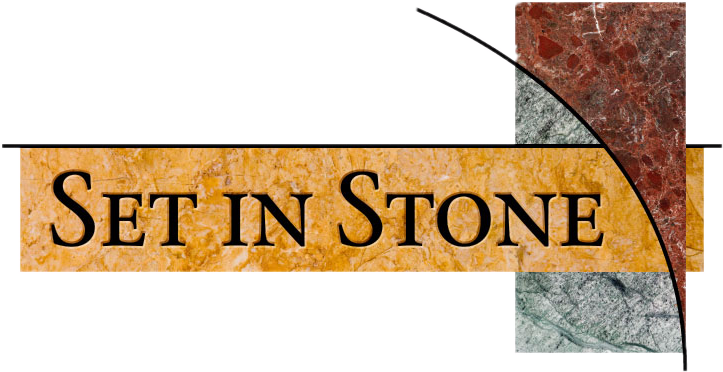Full Service Fabrication and Design
406-726-3278
Stone Types
Granite Marble
Granite is by far the most popular counter top material and with good reason. Granite surfaces resist staining, scratches, extreme heat, and acids making it the hardest material available . This natural stones inherent density means it is easy to clean, does not harbor bacteria and requires minimal maintenance to keep its good looks. Each slab has its own unique markings, patterns, and veining, allowing endless possibilities for design. In addition to counter tops, granite can be used for bar tops, vanities, walls, floors, and fireplace surrounds.
Onyx Limestone
Onyx is semi-precious, translucent stone. It requires special care, due to its softness and generally suitable for areas that receive light duty use only. Onyx makes beautiful fireplace surrounds, bar tops, wall cladding, sinks, and tables. Because the stone transmits light, onyx can be back lit to show off the color and pattern of the stone.
Travertine Slate
Travertine is related to limestone, and shares some of its characteristics. It does react to acids, and is not recommended for counter tops. Travertine is used for interior walls, back splashes, sinks, floors, mosaic tiles, statuary, fireplace surrounds, tub surrounds, vanities, and end tables.
Soapstone Quartzite
Soapstone is a soft, dense stone that can scratch easily, but the scratches can be easily removed. It does not react to acids in foods and does not stain, making it the counter top choice for laboratories world wide. It has a soft, warm, silky feel and requires minimal care. Soapstone can be used for sinks, counter tops, island tops, sills, flooring and shower stalls. Soapstone is typically sealed with mineral or vegetable oil, or a soapstone wax, which may need to be periodically reapplied for consistent coloration.
Engineered Quartz Stone
Elegant and beautiful, marble has lower abrasion resistance and higher absorption than granite, requiring more maintenance. In most cases we recommend this material for bathroom surfaces, however it could be a potential kitchen selection if the client understands its limitations. The expectation is a marble slab used for rolling out pastry; the cool characteristic of the stone is perfect for working with delicate pastry dough. Marble is a great choice for bathroom vanities, floors, tub decks, and showers. It comes in a large number of colors with distinct, often dramatic, veining. All marbles surfaces must be sealed.
Limestone is a durable, versatile stone that can be used for almost any application including flooring, walls, islands, vanities, and for limited countertop use. Since it is a softer sedimentary stone, it does react to acids and must be sealed to protect against staining.
Slate is beautiful, versatile, natural surface for flooring, counter tops - even roofing tiles. It is often used for bathroom showers, tubs, and vanities. Slate is dense and highly resistant to staining but must be sealed.
Quartzites are formed from sandstone and quartz. When the sandstone undergoes immense pressure and heat, the grains of quartz in the sandstone recrystallize, giving quartzite its characteristic sparkle. Because of this metamorphic process, quartzite is durable and ideal for any countertop.
A non-porous, scratch resistant, stain resistant surface. It does not need to be sealed and do not react to high heat. Engineered stone can be used for many types of interior uses. This unique surface provides consistent color available in vivid colors and patterns. Engineered Stone surfaces are up to 93% natural quartz bonded with polymers and pigments.
